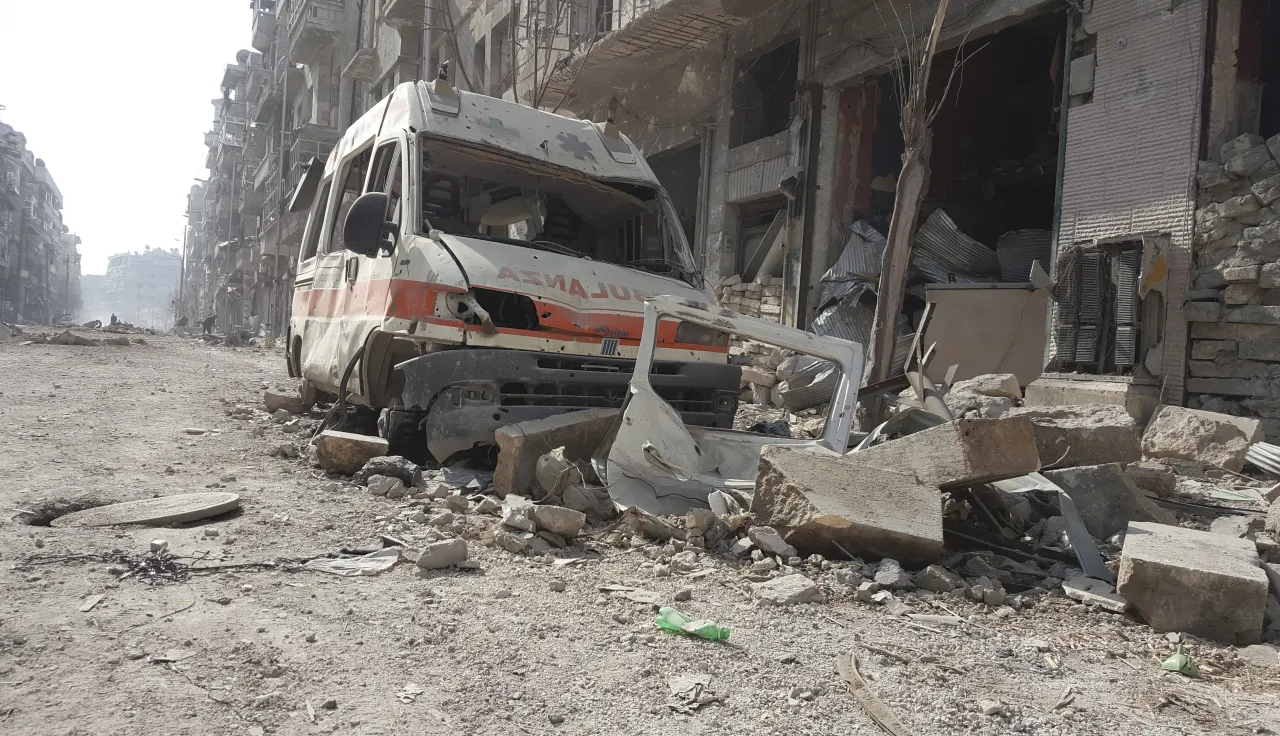Across the ICRC's operations, whether in Yemen, Syria, Afghanistan, Ukraine or Nigeria we are seeing the deadly effects of conflict on health systems and health care.
While the direct impact of violence often focuses public attention, the cumulative destruction of large-scale, interconnected infrastructure and systems is also putting the lives of millions in jeopardy. Essential medications are in short supply or prohibitively expensive. People with chronic diseases go without treatment. Rapidly spreading diseases, like cholera and diphtheria, pose huge threats to whole communities. Beyond death and injury, wars also leave invisible scars on entire societies, including psychological trauma or untreated mental health disorders.
The ICRC is observing the concerning impacts when health care is politicized or used as a tactic of war, meaning large segments of communities are cut off from help. In the face of these challenges, the ICRC is adapting and enlarging its response. For example today, our teams are holding together key lifelines – from fixing and setting up water and electricity infrastructure, to supporting hospitals and orthopedic centres or running mobile health clinics.
As we all need to adapt to the realities of today's conflict, I bring the attention of the international community to seven key areas for action:
- The international community should do more to prevent the collapse of healthcare systems and act swiftly to protect communities. In active war zones, the question must be: 'life or death?' not 'humanitarian or development'? We need flexible mechanisms for rapid – yet sustainable and connected – responses.
- We must "make the invisible, visible" by reaching and designing solutions with people who face particular challenges in accessing health careWomen, children, the elderly, survivors of sexual violence, persons with disabilities, those dealing with mental health conditions, and detainees all require specific approaches. Trained local health workers, including the staff and volunteers of the Red Cross Red Crescent Movement, are a key frontline to delivering ongoing and comprehensive services.
- Global health care cannot be achieved when humanitarian access is blocked and outrageous attacks on healthcare personnel, facilities and medical transport continue. Concrete steps are needed to ensure health systems are protected, and healthcare workers can access communities and patients can access services.
- The ICRC has noted increased constraints in access to health services, including hospital care for weapon wounded adversaries, due to the radicalization of religious and political ideologies. We urge all parties to provide, or at a minimum allow impartial treatment, to all victims of hostilities.
- We urge all governments, donors and agencies to consider healthcare in humanitarian settings as part of a long-term investment to providing a continuum of care for people affected by conflict and violence.
- The ICRC urges the international community to increase quality support to address people's mental health and psychosocial support needs, and to tackle the often overlooked area of non-communicable diseases in conflict settings.
- To limit the destruction of health and other systems in the first place, we urge all parties in urban conflicts to take all feasible precautions to protect civilians, to avoid using explosive weapons with a wide impact in densely populated areas, given their likely indiscriminate effects.
Improving global healthcare will be a focus of the upcoming 33rd International Conference of the Red Cross and Red Crescent next year, when States come together with 191 National Red Cross and Red Crescent Societies. We urge States to use this platform to make gains in improving access to quality health services, to reduce violence against health care workers and facilities, and to address mental health and psychosocial needs arising from armed conflicts.
Dear colleagues, every time a child dies because they cannot access treatment, a victim of sexual violence is ignored or a health worker is attacked, we should be shocked and outraged. But more than this: we must move past our outrage to sober action.




